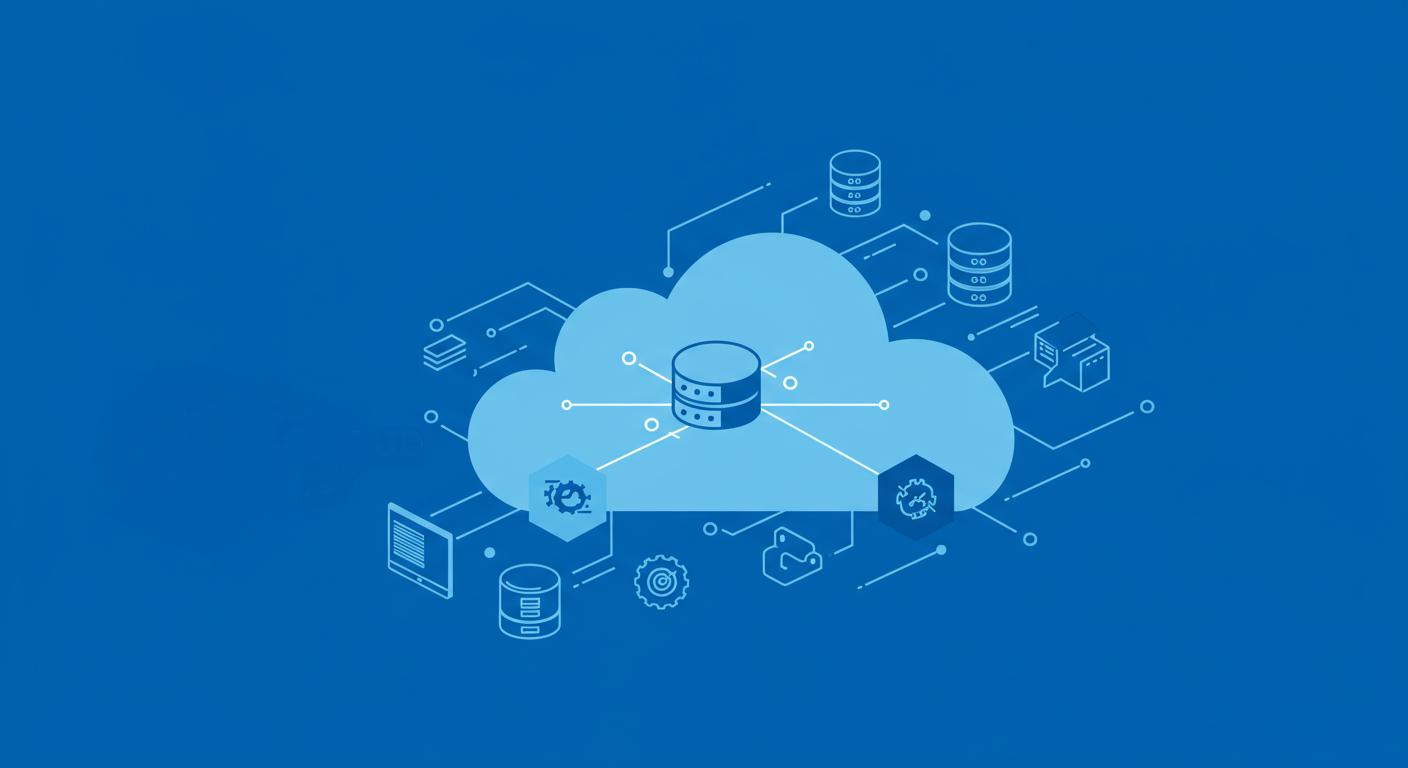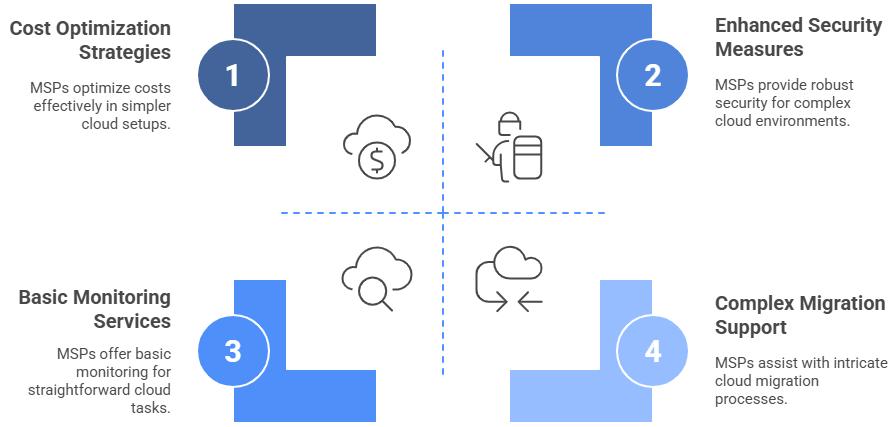
As digital transformation is increasingly a mandate, not an option, companies are under increasing pressure to bring their IT operations up to date. As a consequence, cloud adoption is accelerating among both large corporations and SMBS, with organizations gaining flexibility, scalability, and efficiency that traditional infrastructure can't match. However, the difficulty of managing cloud environments, particularly at scale, has emerged as a serious stumbling block for organizations.
To bridge the gap between Cloud excellence and cloud experience, more businesses are opting to collaborate with Cloud Managed Service providers (MSPs). Additionally, such collaborations are not merely for outsourcing tasks, but are more about achieving a strategic edge, which we have touched upon at length at Wanclouds.
Herein, we discuss three important reasons why this trend is gaining momentum.
Why Cloud Managed Services Are Gaining Momentum

1. Cloud Complexity Demands Specialized Skills
Cloud computing has grown up, but it has not necessarily become easier. The majority of companies today exist within hybrid or Multi-Cloud environments, cobbling together services from sources such as AWS, IBM Cloud, and Azure with legacy environments held on-premises. While it provides incredible flexibility, it creates a whole new level of complexity.
From resource and provisioning management to compliance, networking, and storage optimization, optimizing these environments demands in-depth technical expertise. For most in-house IT staff, staying on top of changing best practices and underlying security measures is a steep hill to climb, particularly when cloud platforms issue new features or modify existing ones on a routine basis.
Even finding and holding onto Cloud experts is not just challenging because of talent gaps, but costly as well. Instead of having large internal teams, most companies are making up for it by relying on managed service providers to do the fill-ins. MSPs not only bring certified know-how but battle-proven approaches as well, for everything from migrations to everyday management. That allows organizations to scale comfortably, knowing their cloud infrastructure is managed by experts in exactly that.
2. Operational Efficiency & Cost Optimization
Although the Cloud is usually sold on the promise of cost savings, the truth is less so. Unmanaged Cloud spending will rapidly get out of hand, resulting in enormous bills that will cause some C-Suites to question their Cloud initiative. Some of these reasons include, for instance, unnecessary services left running, sub-optimal architecture choices, and a lack of monitoring usage.
Managed Service providers, though, assist companies in becoming more methodical in the use of the cloud. By continually monitoring usage trends and tuning workloads, they can help organizations minimize waste and scale down their environments. This may perhaps only look like "cutting costs," but it is more about making your cloud journey tailored and ensuring the best return on what's being spent already.
In addition, MSPs usually have predictable pricing plans, allowing finance teams to forecast cloud-associated costs reliably. Unlike responding to every month's surprises, businesses are able to plan and prioritize budgets where they are most critical strategically.
Efficiency is also in the form of automation. Automated workflows are frequently part of managed services that are intended to decrease human error, speed up response times, and enable internal teams to dedicate themselves to initiatives that push the company forward, as opposed to remaining bogged down in a reactive maintenance cycle.
3. Increased Security for Business Continuity
As companies move more data and services to the cloud, the stakes for security and uptime are greater than ever, given that cyberattacks have become more plentiful and sophisticated. Consequently, regulatory compliance is tightening up even as customers demand constant availability with little tolerance for downtime.
Luckily, Cloud Managed Service providers are at the forefront of shielding companies from these changing threats. Through 24/7 monitoring, incident response preparedness, and integrated security measures, MSPs keep companies one step ahead of threats. Ongoing updates and vulnerability scans are also performed as part of an active, proactive strategy, not a reactive scramble once something has failed.

Disaster Recovery is a key area where MSPs bring value, and in the case of a cyberattack or natural disaster, an effective Disaster Recovery plan can be the difference between business success and disastrous failure. Managed services usually entail backup plans and recovery procedures that are periodically tested and fine-tuned as a result, minimizing data loss and speedy restoration of services whenever there are disruptions.
Furthermore, Cloud Managed Services also enable regulatory compliance. If a company has to conform to HIPAA, GDPR, or similar industry-specific requirements, MSPs have the skills and tools required to keep data safe and processes audit-ready. By offloading cloud security and continuity responsibility to a known partner, organizations reduce risk while leaving internal teams to innovate and drive growth.
Final Thought
Organizations in a range of sectors are finding that Cloud Managed Services provide a wiser, more scalable means to enable their digital aspirations. From technical knowledge to cost management and enhanced security, the benefits are painstakingly obvious.
As Cloud adoption accelerates, managed service providers are most likely to become even more central to assisting companies through their changing technology landscapes. The firms that see this first are positioning themselves not only to weather the digital future—but to dictate it.